
Turin: The Jewel of the Italian Alps
Nestled in the shadow of the majestic Alps, Turin is a city that brims with history, culture, and culinary delights. Known as the birthplace of Italian cinema and a hub for the automotive industry, Turin offers a unique blend of old-world charm and modern innovation. Walking through its elegant boulevards, you will encounter grand palaces, art-nouveau cafes, and world-renowned museums, each narrating a piece of the city's storied past. The heart of Turin is its historic center, where you'll find the Piazza Castello, a vast square surrounded by impressive buildings like the Royal Palace and the Palazzo Madama. Just a short walk away, the Mole Antonelliana stands tall, offering panoramic views of the city from its observation deck. The Egyptian Museum, one of the largest of its kind, is another must-visit, showcasing a remarkable collection of ancient artifacts. Food lovers will find Turin a paradise, with its rich traditions in chocolate and coffee. The city's cafes are perfect for savoring a Bicerin, a local coffee-chocolate drink, or trying out gianduiotto, a hazelnut chocolate originally from Turin. The vibrant markets, such as Porta Palazzo, provide a feast for the senses with their fresh produce, cheeses, and meats. As the sun sets, the city's nightlife comes alive with trendy bars and fine dining restaurants, making Turin a perfect destination for every traveler.
Local tips in Turin
- Visit the Egyptian Museum early in the morning to avoid the crowds.
- Try the local specialty, Bicerin, at Caffè Al Bicerin, a historic cafe that has been serving it since the 18th century.
- Take a walk along the Po River for picturesque views and a relaxing atmosphere.
- If you plan to visit the Mole Antonelliana, buy tickets online in advance to skip the queue.
- Explore the Quadrilatero Romano district for its vibrant nightlife and excellent dining options.
Neighbourhoods in Turin
Turin: The Jewel of the Italian Alps
Nestled in the shadow of the majestic Alps, Turin is a city that brims with history, culture, and culinary delights. Known as the birthplace of Italian cinema and a hub for the automotive industry, Turin offers a unique blend of old-world charm and modern innovation. Walking through its elegant boulevards, you will encounter grand palaces, art-nouveau cafes, and world-renowned museums, each narrating a piece of the city's storied past. The heart of Turin is its historic center, where you'll find the Piazza Castello, a vast square surrounded by impressive buildings like the Royal Palace and the Palazzo Madama. Just a short walk away, the Mole Antonelliana stands tall, offering panoramic views of the city from its observation deck. The Egyptian Museum, one of the largest of its kind, is another must-visit, showcasing a remarkable collection of ancient artifacts. Food lovers will find Turin a paradise, with its rich traditions in chocolate and coffee. The city's cafes are perfect for savoring a Bicerin, a local coffee-chocolate drink, or trying out gianduiotto, a hazelnut chocolate originally from Turin. The vibrant markets, such as Porta Palazzo, provide a feast for the senses with their fresh produce, cheeses, and meats. As the sun sets, the city's nightlife comes alive with trendy bars and fine dining restaurants, making Turin a perfect destination for every traveler.
When is the best time to go to Turin?
Iconic landmarks you can’t miss
Mole Antonelliana
Discover the breathtaking Mole Antonelliana, an iconic museum in Turin showcasing cinematic history and stunning panoramic views of the city.
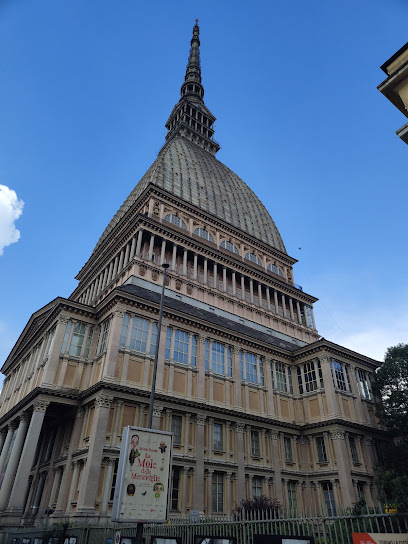
Parco del Valentino
Explore the lush landscapes and historical treasures of Parco del Valentino, a serene retreat in the heart of Turin, perfect for relaxation and discovery.
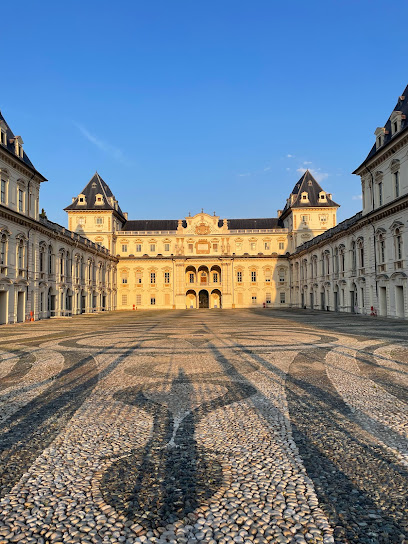
Piazza San Carlo
Explore the elegance of Piazza San Carlo, a historic gem in Turin perfect for leisurely strolls, shopping, and savoring local delicacies.
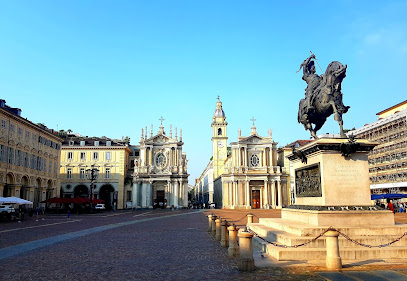
Basilica of Superga
Experience the breathtaking beauty and historical significance of the Basilica of Superga, a stunning Baroque masterpiece with panoramic views of Turin.
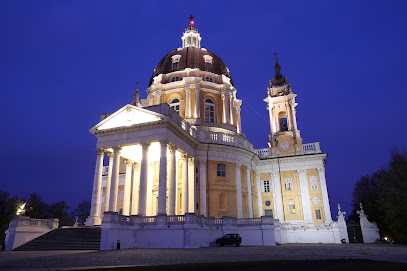
Borgo Medievale
Immerse yourself in the enchanting Borgo Medievale, a captivating open-air museum in Turin showcasing the charm of the Middle Ages with stunning architecture and engaging exhibits.
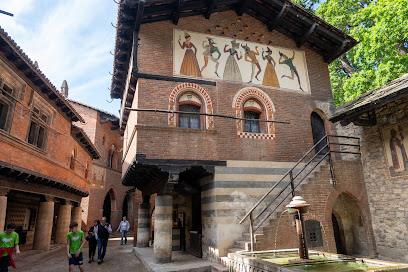
Piazza Statuto
Experience the historic beauty and vibrant atmosphere of Piazza Statuto, a cultural gem in the heart of Turin, Italy.
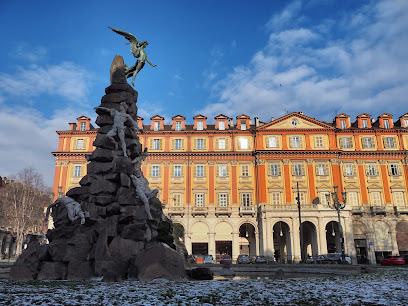
Palazzo Madama
Explore the rich history and art of Palazzo Madama, a stunning castle and museum at the heart of Turin, blending medieval architecture with modern exhibitions.
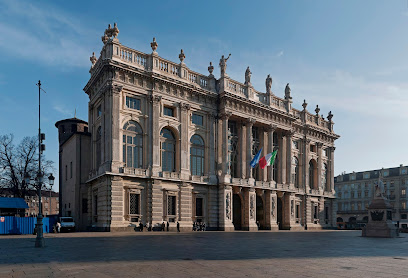
Parco Ruffini
Discover the lush landscapes and vibrant culture of Parco Ruffini, Turin's premier park for relaxation and recreation.
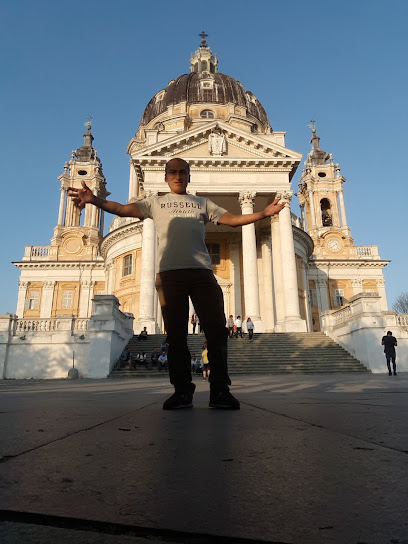
Royal Palace of Turin
Discover the splendor of the Royal Palace of Turin, an architectural masterpiece and a window into the opulent history of the Savoy dynasty.
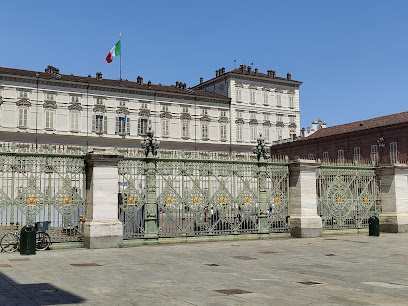
Chiesa Parrocchiale della Gran Madre di Dio
Experience the breathtaking beauty and serene atmosphere of the Gran Madre di Dio Church, a neoclassical masterpiece in the heart of Turin.
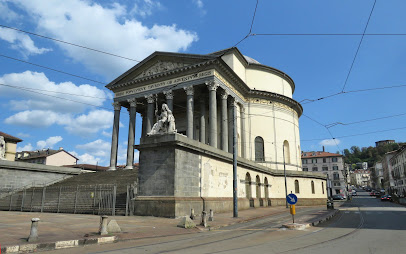
Piazza Castello
Discover the historical charm of Piazza Castello, the heart of Turin, where majestic architecture meets vibrant culture.
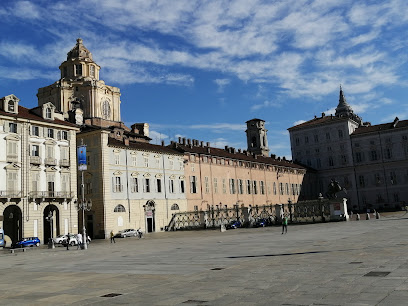
Giardini Reali di Torino
Explore the Royal Gardens of Turin, a serene escape filled with historical charm, exquisite flora, and stunning architecture in the heart of Italy.
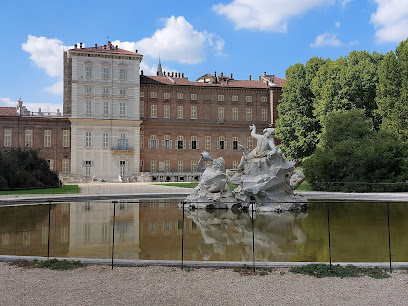
Cappella della Sacra Sindone
Discover the sacred beauty of the Cappella della Sacra Sindone in Turin, home to the enigmatic Holy Shroud and a masterpiece of architectural brilliance.
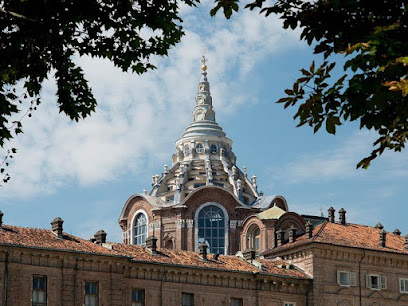
Chiesa di Santa Maria del Monte dei Cappuccini
Explore the serene beauty and stunning views at Chiesa di Santa Maria del Monte dei Cappuccini, a must-visit church in Turin.
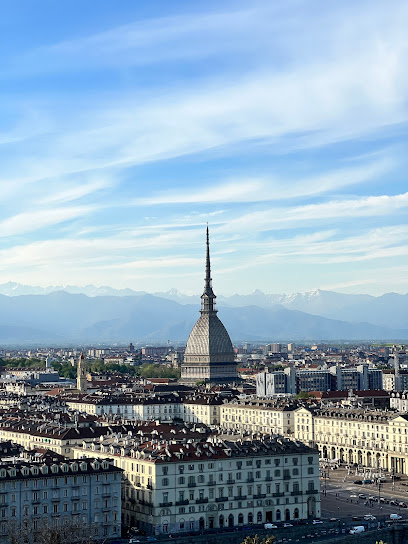
Villa della Regina
Explore the majestic Villa della Regina, a baroque masterpiece in Turin, featuring stunning gardens and a rich history of Italian royalty.
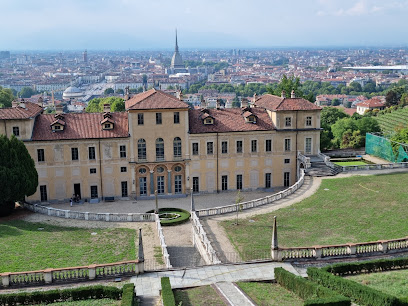
Unmissable attractions to see
Museo Egizio
Explore the rich heritage of ancient Egypt at Museo Egizio in Turin, home to one of the world's finest collections of Egyptian artifacts.
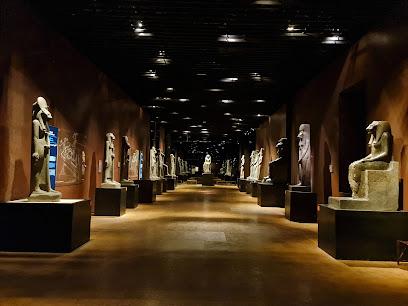
National Museum of Cinema
Experience the magic of cinema at the National Museum of Cinema in Turin, a historical landmark that offers breathtaking views and captivating exhibits.
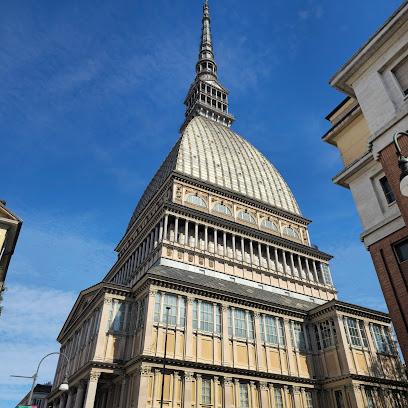
Parco del Valentino
Discover the enchanting Parco del Valentino in Turin, a picturesque park with lush landscapes, historic castles, and vibrant cultural experiences.
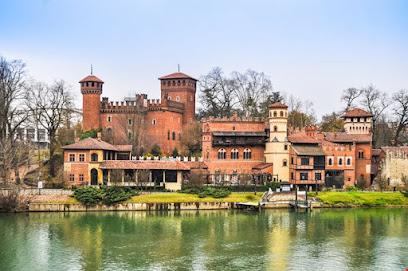
Piazza San Carlo
Discover the charm of Turin at Piazza San Carlo, a stunning baroque square filled with vibrant culture, exquisite architecture, and delightful cafés.
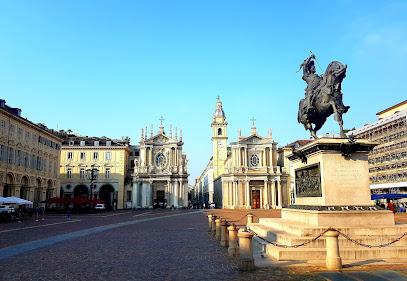
Museo Nazionale dell'Automobile
Explore the rich history of automobiles at Turin's Museo Nazionale dell'Automobile, where innovation meets design in a captivating museum experience.
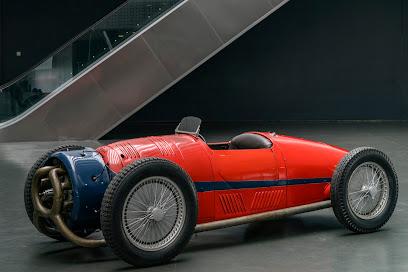
La Venaria Reale
Explore the grandeur of La Venaria Reale, a UNESCO World Heritage site showcasing exquisite Baroque architecture and rich Italian history.
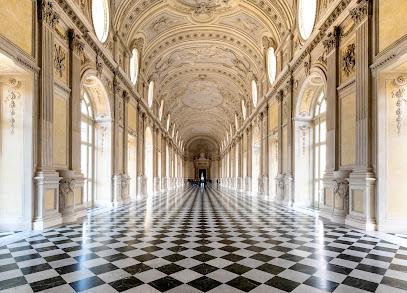
Basilica of Superga
Explore the historical and architectural beauty of the Basilica of Superga, featuring breathtaking views and rich cultural heritage in Turin.
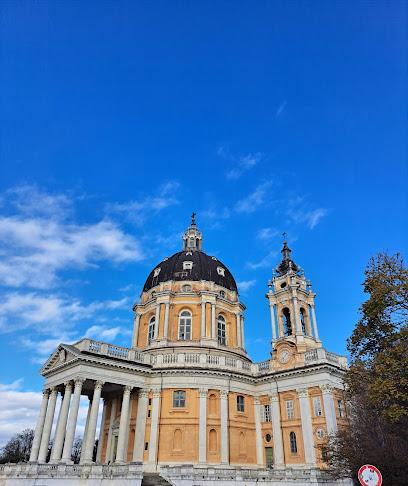
Palazzina di Caccia di Stupinigi
Explore the Baroque beauty and historical significance of the Palazzina di Caccia di Stupinigi, a UNESCO World Heritage site near Turin.
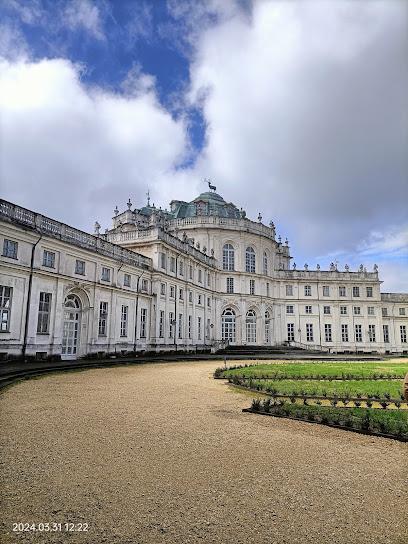
Borgo Medievale
Explore the enchanting Borgo Medievale, an open-air museum in Turin that brings the Middle Ages to life with stunning architecture and interactive experiences.
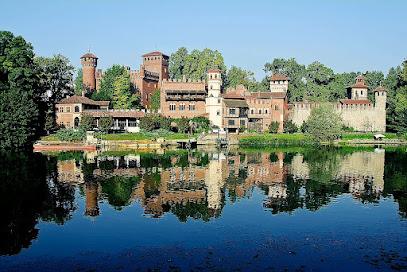
Palazzo Madama
Explore the historic charm and artistic treasures of Palazzo Madama in Turin, a captivating castle and museum that showcases Italy's rich heritage.
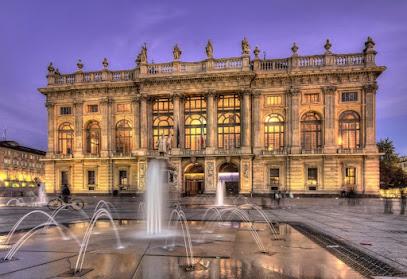
Parco Ruffini
Explore Parco Ruffini in Turin, a lush park featuring jogging tracks, vibrant gardens, and cozy cafes for a relaxing day in nature.
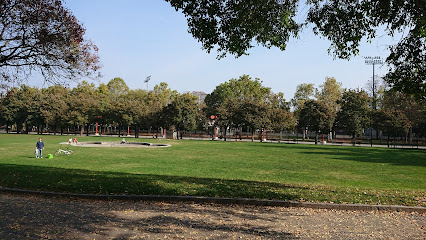
Parco La Mandria
Discover the beauty and history of Parco La Mandria, a UNESCO World Heritage site in Venaria Reale, a perfect blend of nature and heritage.
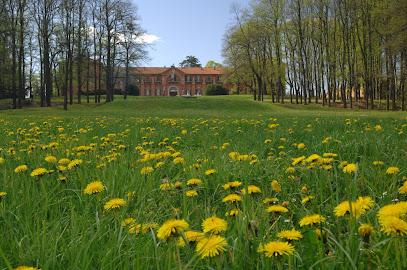
Royal Palace of Turin
Explore the Royal Palace of Turin, a UNESCO World Heritage site showcasing Baroque architecture, exquisite art, and lush gardens in the heart of Italy.
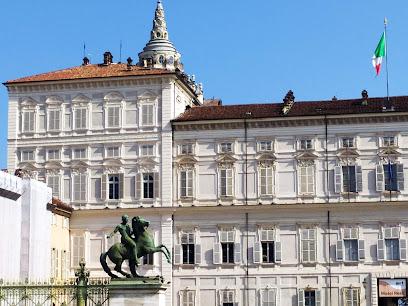
Parco della Pellerina
Discover the lush landscapes and recreational delights of Parco della Pellerina, Turin's expansive city park and serene escape from urban life.
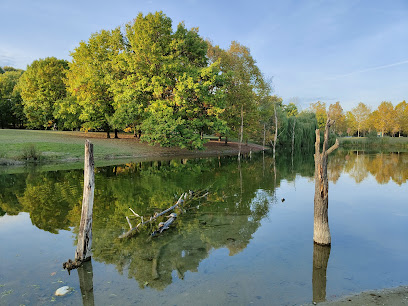
Sacra di San Michele
Explore the Sacra di San Michele, a majestic abbey offering breathtaking views, rich history, and a serene spiritual experience in the heart of Piedmont, Italy.
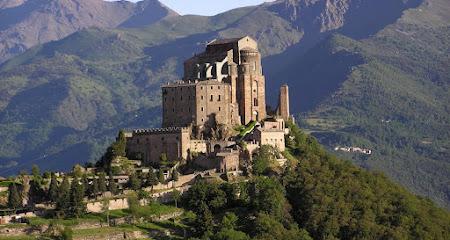
Essential places to dine
Poormanger
Experience authentic Italian cuisine at Poormanger in Turin, where tradition meets modern fast-casual dining.
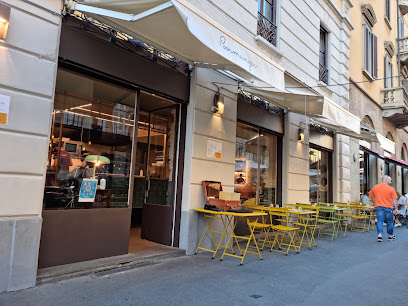
Porto di Savona
Discover authentic Piedmontese cuisine at Porto di Savona in Turin – where tradition meets taste in every delightful dish.
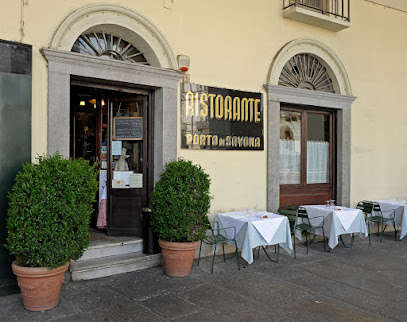
Ristorante Circolo dei Lettori
Experience authentic Italian cuisine at Ristorante Circolo dei Lettori in Turin – where every dish tells a story.
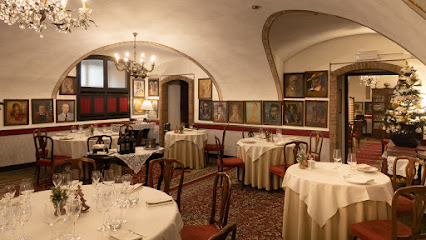
La Casa Del Demone
Discover La Casa Del Demone in Turin - where exquisite steaks meet authentic Italian barbecue in a vibrant dining atmosphere.
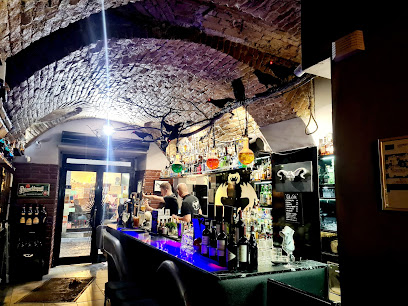
Ristorante Solferino
Experience authentic Italian cuisine at Ristorante Solferino in Turin, where every dish tells a story of tradition and flavor.
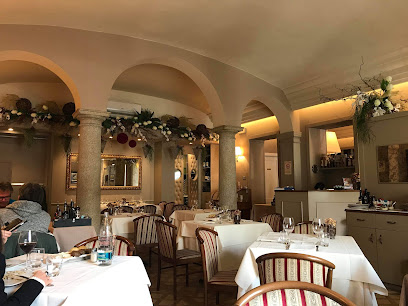
Sciamadda
Experience authentic Ligurian seafood at Sciamadda in Turin – where fresh flavors meet Italian tradition.
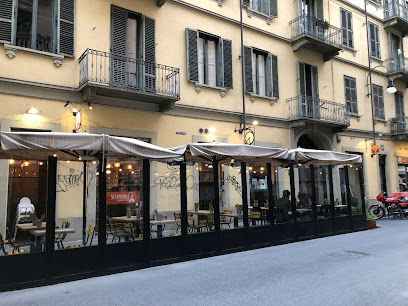
La via del sale
Savor authentic Piedmontese cuisine at La via del sale in Turin - where tradition meets flavor in every dish.
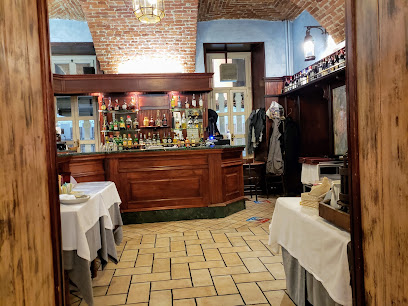
Bistrot Turin
Discover authentic Italian and Piedmontese cuisine at Bistrot Turin - where every meal is a celebration of local flavors in the heart of Italy.
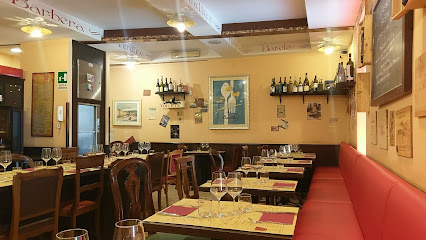
Le Vitel Etonné
Experience authentic Piedmontese cuisine at Le Vitel Etonné in Turin – where every dish tells a story of tradition and flavor.
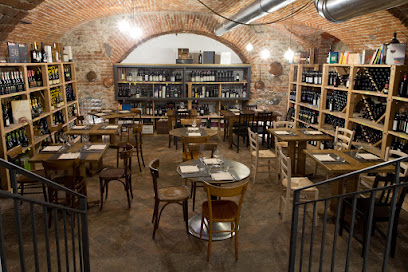
La Taverna Dei Mercanti
Experience authentic Italian cuisine at La Taverna Dei Mercanti in Turin – where tradition meets flavor in every dish.
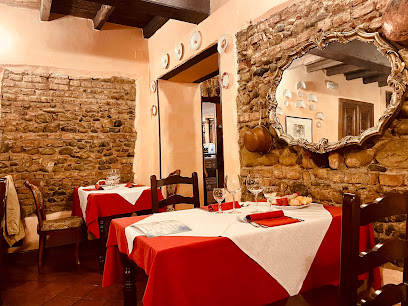
Trattoria AlleVolte
Experience authentic Italian cuisine at Trattoria AlleVolte in Turin – where every meal is a celebration of tradition and flavor.
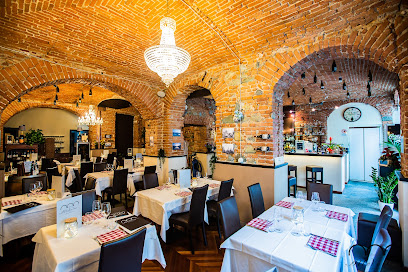
Arcadia
Experience the exquisite fusion of Italian and Japanese cuisine at Arcadia, one of Turin's top dining destinations.
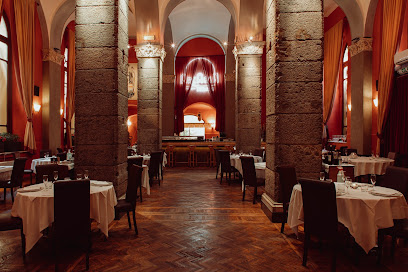
Tre Galline
Discover authentic Piedmontese cuisine at Tre Galline in Turin - where tradition meets flavor in every dish.
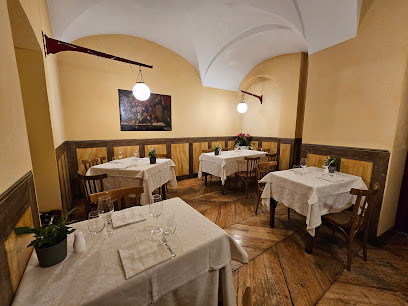
Taverna delle Rose
Discover Taverna delle Rose: A charming Italian restaurant in Turin offering authentic Piedmontese cuisine in a warm and welcoming atmosphere.
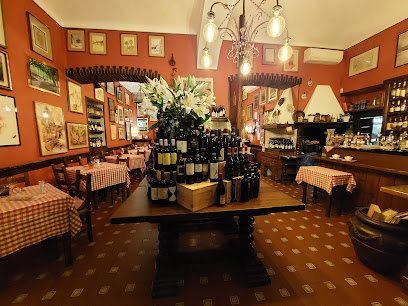
Tre Galli
Experience authentic Italian and Piedmontese cuisine at Tre Galli in Turin—where every dish tells a story of tradition and flavor.
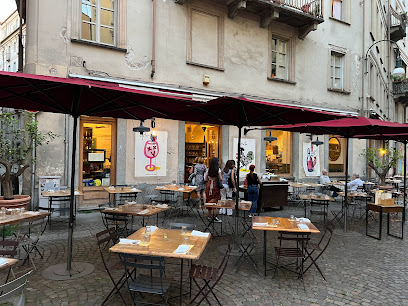
Markets, malls and hidden boutiques
RINASCENTE Turin Store
Discover luxury shopping at Rinascente Turin, where Italian fashion meets gourmet dining in a stylish setting.
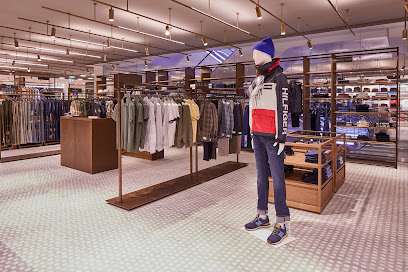
Flying Tiger Copenhagen
Explore the vibrant and quirky offerings at Flying Tiger Copenhagen in Turin, a must-visit gift shop filled with unique finds and delightful surprises.
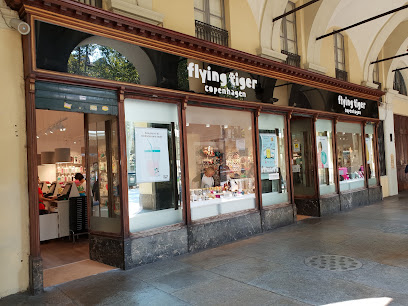
Atipici Shop
Discover the ultimate shopping experience at Atipici Shop in Turin, where contemporary fashion meets family-friendly style.
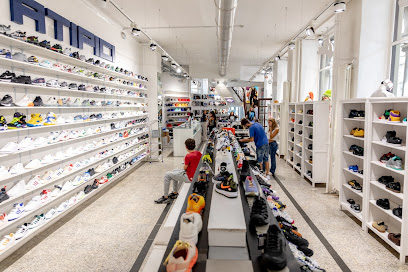
Louis Vuitton Turin
Experience the epitome of luxury shopping at Louis Vuitton Turin, featuring exquisite leather goods and iconic fashion accessories.
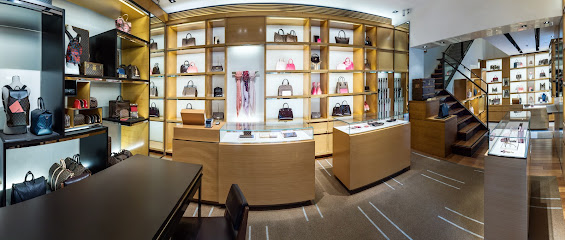
HUMANA Second Hand Torino
Explore sustainable fashion at HUMANA Second Hand Torino, where unique vintage finds await every eco-conscious shopper in the heart of Turin.
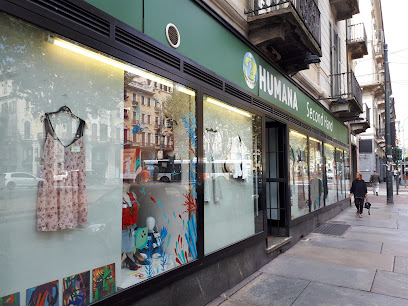
Hannibal Store
Explore Hannibal Store in Turin for a unique blend of contemporary Italian fashion and local artistry, perfect for your wardrobe or as a memorable souvenir.
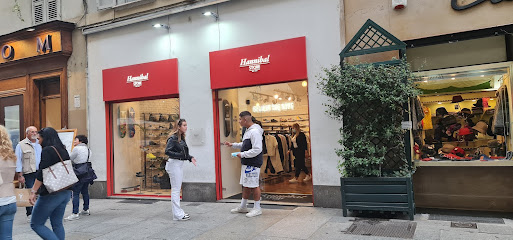
CHA.RLY Vintage&flowers
Explore the charm of CHA.RLY Vintage & Flowers in Turin, where timeless elegance meets eco-conscious fashion in a delightful boutique experience.
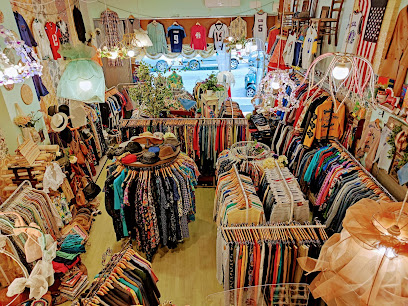
Boutique Legami
Explore the charm of Boutique Legami in Turin, a delightful gift shop and stationery haven offering unique items for every occasion.
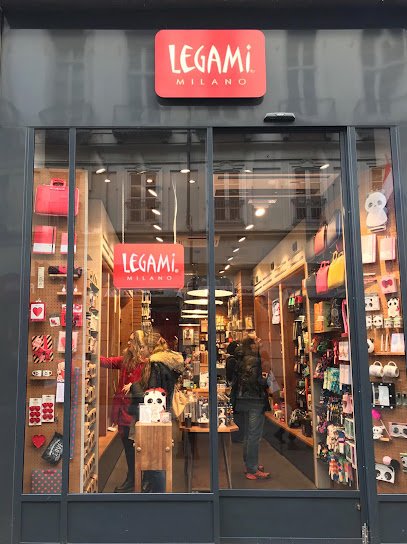
SWAROVSKI Store Torino
Discover the enchanting world of SWAROVSKI in Turin, where crystal elegance meets exquisite design in a luxurious shopping experience.
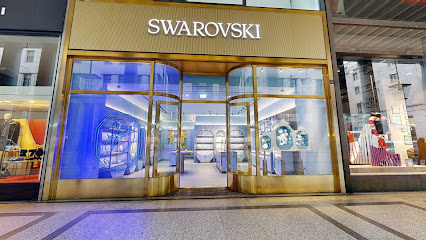
Gucci
Discover the elegance of Gucci in Turin - a luxurious shopping experience for fashion lovers with exclusive clothing, accessories, and jewelry.
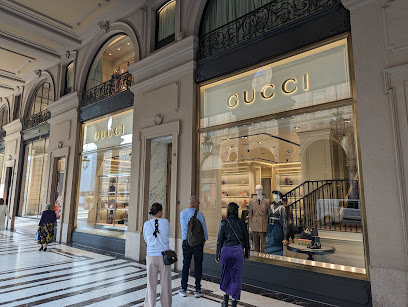
Torino Vintage Subdued
Discover stylish women's and youth clothing at Torino Vintage Subdued, a trendy clothing store in the heart of Turin, blending urban trends with timeless fashion.
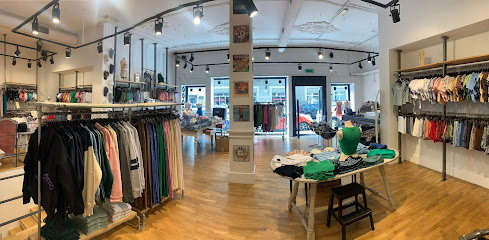
HERMÈS Torino
Explore the luxurious world of HERMÈS in Turin, featuring exquisite leather goods and fashion that define elegance and sophistication.
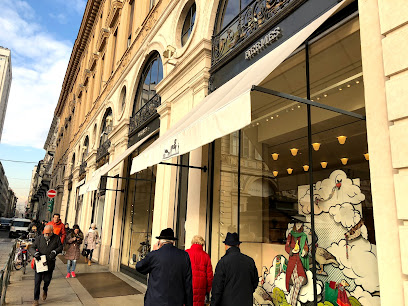
Natura
Explore Natura in Turin for an eclectic mix of clothing, books, and unique gifts that reflect your personal style and creativity.
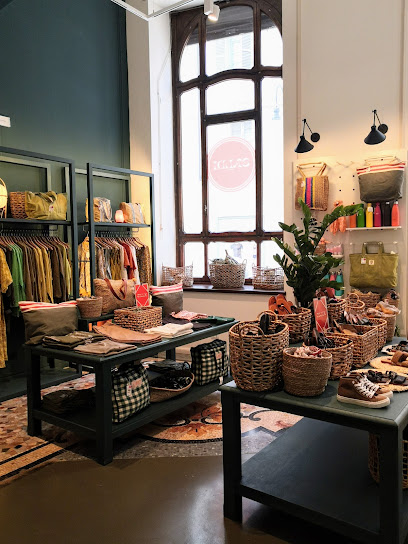
Stone Island Torino
Explore the unique blend of style and innovation at Stone Island, Turin's premier men's clothing store, perfect for fashion enthusiasts.
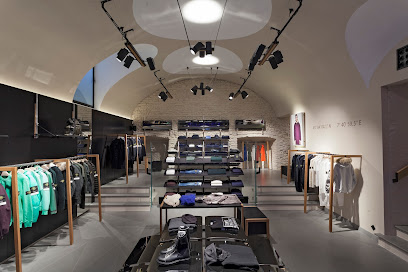
Antonioli
Discover luxury fashion at Antonioli, Turin's premier boutique offering exclusive contemporary styles and high-end designer collections.
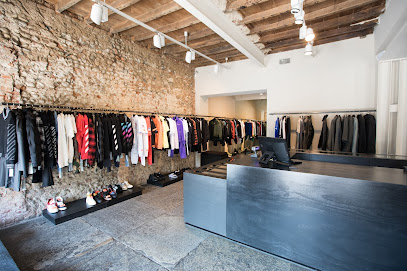
Essential bars & hidden hideouts
Jumping Jester Pub
Unwind at Jumping Jester Pub, where lively atmosphere meets delicious food and drinks in the heart of Turin.
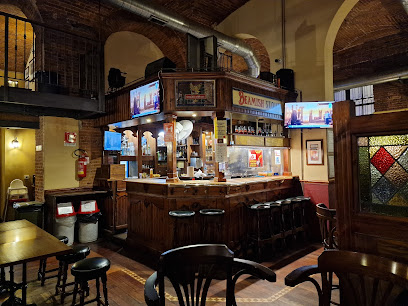
Talent Cafe' Lounge Bar
Experience vibrant nightlife and culinary delights at Talent Cafe' Lounge Bar in Turin, where cocktails meet comfort food in a stylish setting.
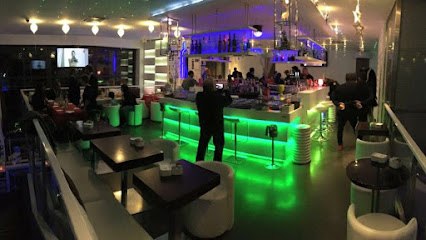
Le Panche Cocktail Bar
Discover Le Panche Cocktail Bar in Turin - a lively cocktail haven with innovative drinks, live music, and an inviting ambiance perfect for socializing.
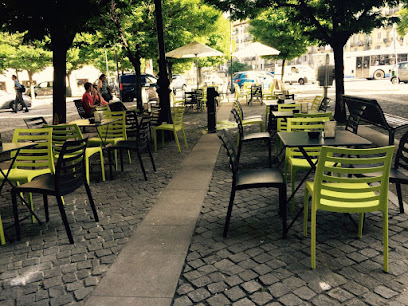
La Drogheria - Cocktail Bar
Discover La Drogheria, a stylish cocktail bar in Turin, offering exquisite drinks and delicious tapas in a vibrant atmosphere.
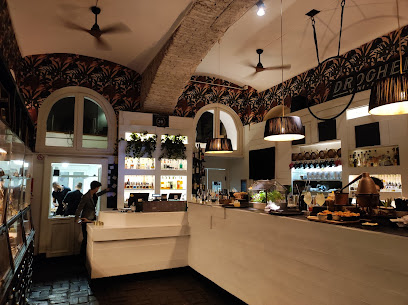
Shore Cocktail Bar
Discover the chic Shore Cocktail Bar in Turin, where expertly crafted cocktails and a vibrant atmosphere await every visitor.
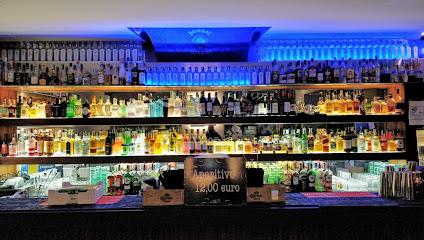
Smile Tree - Cocktail Bar a Torino
Discover Smile Tree Cocktail Bar in Turin – where innovative cocktails and delightful small plates meet a vibrant nightlife experience.
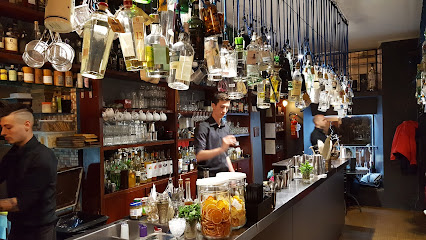
The Shamrock Inn
Experience the charming atmosphere of The Shamrock Inn, an Irish pub in Turin offering hearty food, a great selection of beers, and live music.
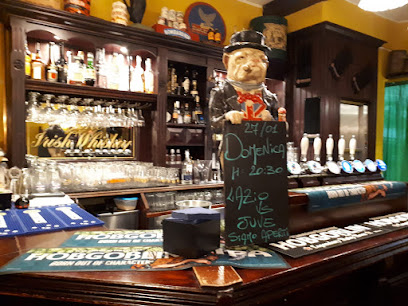
Tclub Street Bar
Experience the best of Turin's nightlife at Tclub Street Bar with innovative cocktails and a lively atmosphere.
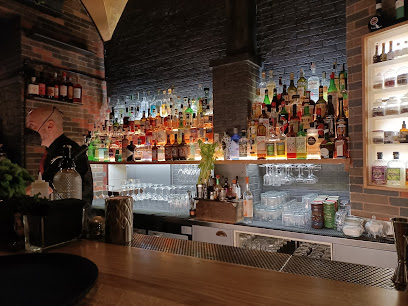
Barz8
Experience the vibrant nightlife of Turin at Barz8, where expertly crafted cocktails meet a stylish atmosphere in the heart of the city.
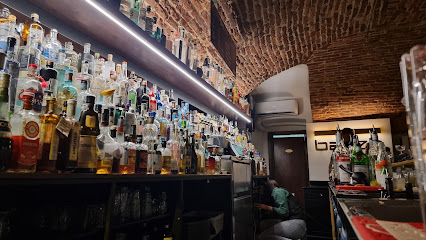
La Santa Wine & Spirits Torino
Discover La Santa Wine & Spirits in Turin, where exquisite cocktails meet delicious small plates in a cozy and chic atmosphere.
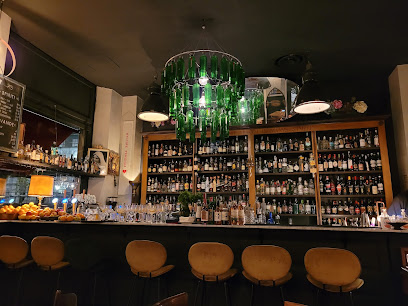
The Mad Dog Social Club
Discover the vibrant nightlife of Turin at The Mad Dog Social Club, a premier live music venue featuring eclectic performances and expertly crafted cocktails.
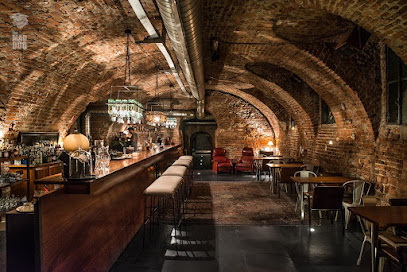
Clorophilla
Discover Clorophilla, the vibrant cocktail bar in Turin's Piazza Vittorio Veneto, offering innovative drinks and a lively atmosphere for all.
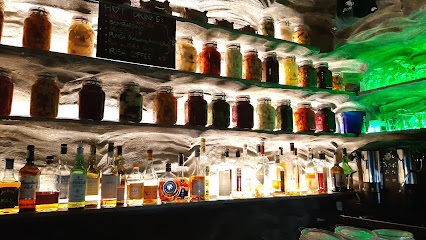
Mojo Bar
Discover the vibrant atmosphere and innovative cocktails at Mojo Bar, a must-visit cocktail bar in the heart of Turin, Italy.
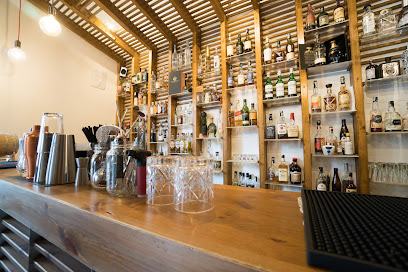
La Rhumerie 18
Discover La Rhumerie 18, a vibrant cocktail bar in Turin offering expertly crafted drinks and a lively atmosphere for an unforgettable night out.
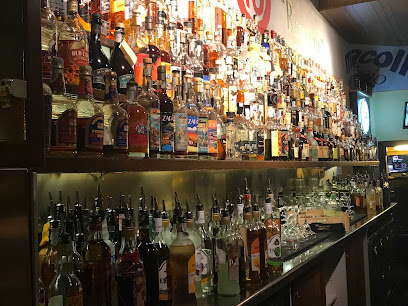
Local Phrases
-
- HelloCiao
[chow] - GoodbyeArrivederci
[ah-ree-veh-dehr-chee] - YesSì
[see] - NoNo
[noh] - Please/You're welcomePer favore/Prego
[pehr fah-vo-reh/preh-goh] - Thank youGrazie
[grah-tsyeh] - Excuse me/SorryMi scusi/Scusa
[mee skoo-zee/skoo-sah] - How are you?Come stai?
[koh-meh stah-ee] - Fine. And you?Bene. E tu?
[beh-neh eh too] - Do you speak English?Parli inglese?
[pahr-lee een-gleh-zeh] - I don't understandNon capisco
[non kah-pee-skoh]
- HelloCiao
-
- I'd like to see the menu, pleaseVorrei vedere il menù, per favore
[vohr-reh veh-deh-reh eel meh-noo, pehr fah-vo-reh] - I don't eat meatNon mangio carne
[non man-joh kahr-neh] - Cheers!Salute!
[sah-loo-teh] - I would like to pay, pleaseVorrei pagare, per favore
[vohr-reh pah-gah-reh, pehr fah-vo-reh]
- I'd like to see the menu, pleaseVorrei vedere il menù, per favore
-
- Help!Aiuto!
[ah-yoo-toh] - Go away!Vai via!
[vah-ee vyah] - Call the Police!Chiamate la Polizia!
[kyah-mah-teh lah poh-lee-tsya] - Call a doctor!Chiamate un dottore!
[kyah-mah-teh oon doh-toh-reh] - I'm lostMi sono perso
[mee soh-no pehr-soh] - I'm illSto male
[stoh mah-leh]
- Help!Aiuto!
-
- I'd like to buy...Vorrei comprare...
[vohr-reh kohm-prah-reh] - I'm just lookingSto solo guardando
[stoh soh-loh gwar-dahn-doh] - How much is it?Quanto costa?
[kwan-toh koh-stah] - That's too expensiveÈ troppo caro
[eh trohp-poh kah-roh] - Can you lower the price?Può abbassare il prezzo?
[pwoh ahb-bahs-sah-reh eel preh-tsoh]
- I'd like to buy...Vorrei comprare...
-
- What time is it?Che ora è?
[keh oh-rah eh] - It's one o'clockÈ l'una
[eh loo-nah] - Half past (10)Mezza (dieci) passato
[meh-tsah (dyeh-chee) pah-sah-toh] - MorningMattina
[maht-tee-nah] - AfternoonPomeriggio
[poh-meh-ree-joh] - EveningSera
[seh-rah] - YesterdayIeri
[yeh-ree] - TodayOggi
[oh-jee] - TomorrowDomani
[doh-mah-nee] - 1Uno
[oo-no] - 2Due
[doo-eh] - 3Tre
[treh] - 4Quattro
[kwah-troh] - 5Cinque
[cheen-kweh] - 6Sei
[seh-ee] - 7Sette
[seht-teh] - 8Otto
[oh-ttoh] - 9Nove
[noh-veh] - 10Dieci
[dyeh-chee]
- What time is it?Che ora è?
-
- Where's a/the...?Dov'è un/il...
[doh-veh oon/eel] - What's the address?Qual è l'indirizzo?
[kwahl eh leen-dee-reet-soh] - Can you show me (on the map)?Puoi mostrarmi (sulla mappa)?
[pwah-ee mohs-trar-mee (sool-lah mahp-pah)] - When's the next (bus)?Quando passa il prossimo (autobus)?
[kwan-doh pahs-sah eel prohs-skee-moh (ow-toh-boos)] - A ticket (to ....)Un biglietto (per ....)
[oon beel-lyet-toh (pehr)]
- Where's a/the...?Dov'è un/il...
History of Turin
-
Turin, known as Torino in Italian, was originally an ancient Roman military camp called Augusta Taurinorum, established around 28 BC. Its strategic location at the convergence of the Po and Dora Riparia rivers made it a crucial point for trade and military operations. Evidence of Roman influence can still be seen today in the city’s grid layout and ruins such as the Porta Palatina.
-
During the Middle Ages, Turin became an important center under the control of the House of Savoy in the 11th century. The construction of significant buildings like the Palazzo Madama began during this time. The city’s medieval character is preserved in its narrow streets and the remnants of fortifications that can be found scattered throughout the old town.
-
The Renaissance period marked a time of extensive architectural and cultural development in Turin. The city was transformed with magnificent structures like the Palazzo Reale and the Cathedral of San Giovanni Battista, where the world-renowned Shroud of Turin is housed. The Baroque era further enriched the city’s architectural landscape with masterpieces by architects such as Guarino Guarini and Filippo Juvarra, including the Church of San Lorenzo and the Basilica of Superga.
-
In 1861, Turin was declared the first capital of the newly unified Italy. This period saw rapid modernization and industrial growth. The capital status brought with it political significance and stimulated the development of infrastructure, including the famous Mole Antonelliana, which originally was intended to be a synagogue but now houses the National Museum of Cinema.
-
The early 20th century marked Turin’s emergence as an industrial powerhouse, primarily due to the founding of Fiat in 1899. The automobile manufacturer played a pivotal role in Turin’s economic development and contributed to its reputation as the ‘Automobile Capital of Italy.’ The Lingotto building, a former Fiat factory, is a testament to this industrial era and today serves as a multi-purpose complex.
-
Turin underwent significant hardship during World War II, facing heavy bombings that damaged much of the city’s infrastructure. The post-war period was characterized by extensive reconstruction efforts, leading to a period of economic boom known as the ‘Italian Economic Miracle.’ This era saw the rise of modernist architecture and the expansion of urban areas to accommodate the growing population.
-
In recent decades, Turin has experienced a cultural renaissance, transforming from an industrial city to a hub of art, culture, and innovation. The city hosted the Winter Olympics in 2006, which spurred further urban development and international recognition. Today, Turin boasts a vibrant cultural scene with numerous museums, galleries, and events such as the Turin International Book Fair and the Torino Film Festival.
Turin Essentials
-
Turin is accessible via Turin-Caselle Airport (TRN), located about 16 kilometers north of the city center. The airport is well-connected with major European cities. From the airport, you can take a taxi, bus, or train to reach the city center. Alternatively, Turin is well-connected by train with high-speed trains from major Italian cities like Milan, Rome, and Florence. Driving to Turin is also an option, with well-maintained highways linking it to other parts of Italy and Europe.
-
Turin offers a variety of public transportation options, including buses, trams, and a metro system. The GTT (Gruppo Torinese Trasporti) operates these services, and tickets can be purchased at kiosks, tobacco shops, or via the GTT mobile app. For short distances, bike-sharing services and electric scooters are popular. Taxis are available but can be more expensive. Renting a car is an option but consider the ZTL (Zona a Traffico Limitato) areas with restricted access.
-
The official currency in Turin is the Euro (EUR). Credit and debit cards are widely accepted in hotels, restaurants, and shops. However, it is advisable to carry some cash for smaller establishments, markets, and public transportation. ATMs are plentiful throughout the city, and currency exchange services are available at the airport, major train stations, and various locations in the city center.
-
Turin is generally a safe city for tourists, but as with any major city, it is wise to stay vigilant. Be cautious in crowded areas to avoid pickpocketing, especially in popular tourist spots like Piazza Castello and Porta Palazzo market. Avoid walking alone late at night in less busy areas such as Barriera di Milano and Aurora. Use well-lit, busy streets and always keep an eye on your belongings.
-
In case of an emergency, dial 112 for immediate assistance, which is the single emergency number for police, medical, and fire services. Major hospitals such as Ospedale Molinette provide emergency medical care. Pharmacies are widely available and can provide over-the-counter medications. It is advisable to have travel insurance that covers medical emergencies and to carry a copy of your insurance documents.
-
Fashion: Do dress stylishly, as Turin is known for its fashion. Avoid overly casual attire when dining out. Religion: Do be respectful in religious sites. Cover your shoulders and knees when visiting churches. Public Transport: Do validate your ticket before boarding. Don't forget to offer your seat to elderly passengers. Greetings: Do greet people with a handshake and a smile. A slight nod is also polite. Eating & Drinking: Do try local dishes like agnolotti and bicerin. Don't rush through meals; dining is a leisurely experience in Turin.
-
To experience Turin like a local, visit the Porta Palazzo market, the largest open-air market in Europe. Enjoy an aperitivo in the early evening at one of the many cafes in Piazza Vittorio Veneto. Take a stroll along the Po River and explore the Parco del Valentino. For a unique experience, visit the Mole Antonelliana and its National Cinema Museum. Engage with locals; they are often friendly and eager to share insights about the city.
Trending Landmark in Turin
-
Mole Antonelliana
-
Parco del Valentino
-
Piazza San Carlo
-
Basilica of Superga
-
Borgo Medievale
-
Piazza Statuto
-
Palazzo Madama
-
Parco Ruffini
-
Royal Palace of Turin
-
Chiesa Parrocchiale della Gran Madre di Dio
-
Piazza Castello
-
Giardini Reali di Torino
-
Cappella della Sacra Sindone
-
Chiesa di Santa Maria del Monte dei Cappuccini
-
Villa della Regina
Nearby Cities to Turin
-
Things To Do in Zermatt
-
Things To Do in Genoa
-
Things To Do in Milan
-
Things To Do in Lugano
-
Things To Do in Ascona
-
Things To Do in La Rousse
-
Things To Do in Saint Roman
-
Things To Do in Larvotto
-
Things To Do in Locarno
-
Things To Do in Monte Carlo
-
Things To Do in Moneghetti
-
Things To Do in Les Moneghetti
-
Things To Do in La Condamine
-
Things To Do in Monaco-Ville
-
Things To Do in Fontvieille

















